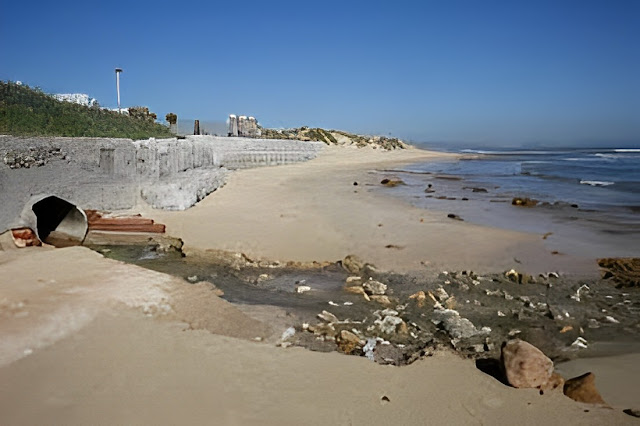Have you ever taken a stroll along the beach, and suddenly, you're hit by an unpleasant smell? You're not alone. Many people have reported that the ocean sometimes smells like sewage. But why is this the case? In this blog post, we'll explore the possible reasons why the ocean sometimes smells like sewage.
Reasons Why the Ocean Smells Like Sewage:
Sewage Discharge: One of the primary reasons why the ocean sometimes smells like sewage is the discharge of untreated sewage into the ocean. Sewage contains a mixture of organic and inorganic substances, including human waste, detergents, food scraps, and other pollutants. When untreated sewage is discharged into the ocean, it can lead to the growth of harmful bacteria and algae that produce hydrogen sulfide gas, which has a rotten egg smell. This gas can travel through the air and cause a sewage-like odor near the ocean.
Algal Bloom: Algal bloom is another reason why the ocean sometimes smells like sewage. Algae are photosynthetic organisms that thrive in the ocean's nutrient-rich waters. Under certain conditions, such as warm temperatures, high nutrient levels, and low water currents, algae can rapidly multiply, creating an algal bloom. Some species of algae produce a compound called dimethyl sulfide, which has a pungent smell similar to that of sewage.
Industrial Pollution: Industrial pollution is another cause of sewage-like odor in the ocean. Industries discharge a variety of chemicals and waste products into the ocean, including heavy metals, pesticides, and other toxins. These pollutants can lead to the growth of harmful bacteria and algae, which can produce hydrogen sulfide and other foul-smelling gases.
Dead Fish and Marine Life: When fish and other marine life die, they can release gases that produce a sewage-like odor. As the dead marine life decomposes, it releases sulfur compounds and other chemicals that create a pungent odor. In addition, when fish and other marine life are trapped in shallow waters, they can consume all the oxygen in the area, leading to anaerobic conditions that promote the growth of bacteria that produce foul-smelling gases.
Natural Processes: Finally, natural processes such as tidal changes and upwelling can also lead to a sewage-like odor in the ocean. During low tide, the ocean's shallow waters are exposed to the air, allowing bacteria to break down organic matter and release hydrogen sulfide and other gases. Upwelling, on the other hand, is a process where cold, nutrient-rich water rises from the ocean's depths, bringing with it hydrogen sulfide and other gases that can cause a sewage-like odor near the ocean.
Conclusion:
In conclusion, there are several reasons why the ocean sometimes smells like sewage. These include the discharge of untreated sewage, algal blooms, industrial pollution, dead fish and marine life, and natural processes such as tidal changes and upwelling. While the occasional sewage-like odor near the ocean is not necessarily a cause for concern, it is essential to address the underlying causes of pollution and take steps to protect our oceans and the marine life that inhabit them. By reducing our reliance on single-use plastics, properly disposing of hazardous waste, and supporting initiatives that promote sustainable fishing practices, we can help preserve our oceans for future generations.









